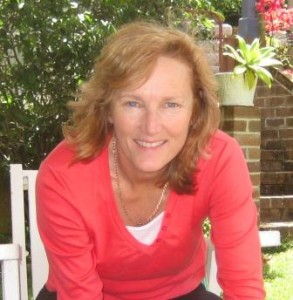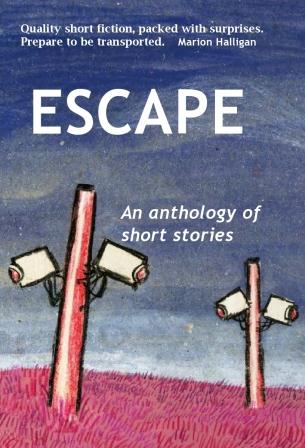 1. Who are the short fiction authors you admire (Australian or otherwise, alive or dead)?
1. Who are the short fiction authors you admire (Australian or otherwise, alive or dead)?
Amy Hempel, Miranda July, Raymond Carver, Alice Munro, Ernest Hemingway, Virginia Peters, Wells Tower, Etgar Keret, Karen Hitchcock.
2. What is the most memorable short story you have read? And why does it stand out for you?
Tricky, since I have a few faves. So I’ll cheat and narrow it down to two: ‘Feathers’ by Raymond Carver and ‘Something That Needs Nothing’ by Miranda July. With ‘Feathers’ I was out-loud laughing at the teeth on top of the TV and the ugly baby. He’s a master at making the ordinary into a page-turner. ‘Something That Needs Nothing’– well, Miranda July just breaks your heart. Funny, too. Can I mention another one? ‘Day of the Butterfly’ by Alice Munro.
3. What do you like about the short story form?
The craft of small things. Honing language. The fact that it’s so hard to get right, keeps you trying.
4. How would you describe your own writing?
I know how I’d like to be writing – like Amy Hempel, Miranda July, Raymond Carver… I’ve had more attempts at answering this question than any other. I guess my style is still evolving. I firmly believe you have to find your own truths, whether they’re hip or not. Otherwise it’s pointless. I’m also trying to make my stories denser, less thin. Becoming more confident with complexities. I’ve written plenty of domestic, relationship/children stories, and I’d like to try to extend myself into a wider landscape. But then again, if that’s my truth…
5. Which of your stories are you most fond of right at this moment and why?
I’ve always been fond of a story I wrote when I was about 19 (sooo long ago). It’s a delicate little 800-worder, about a lonely girl and a cleaning woman. I don’t think I can ever do that again. No point in looking back, though.
6. Where do the ideas for your stories come from? (Take us through an example)
I’m learning to trust my subconscious. I’ve wasted too many years thinking ‘if I don’t have the most brilliant idea it’s not worth starting’. Wrong. You only have to start for the ideas to come. And you’ll never improve if you don’t start. I’ve actually found that planning kills it for me. One method that can unearth surprises is to write to the sound of a loudly ticking timer – no stopping till the bell rings. This seems to quell distractions and editor-think. I handwrite first and only transfer to computer after I’ve scrawled enough pages to look like a story. Some of the stories I’m happiest with have started with a simple freewrite, to limber up. It’s almost as though I uncover the story as I write. Sometimes, when I’m flagging, I’ll break off and read someone I admire to reinvigorate me. I go through all the usual procrastinating rituals before starting, it’s awful! Yet I’m dispirited if I have nothing on the go.
7. What is your writing process – from idea to publication? (Do you go it alone or are others involved?)
Until a couple of years ago, I’ve always gone it alone. But these days only the early and final drafts are done alone. The middle stage is presented to my lovely writing group. These five women are brilliant at brainstorming through dilemmas, pointing out ‘I don’t get it’ moments, telling me I have too many characters, and so on. I adore a good critique. I come home and know what I have to do. This is the fun part. I’m finally inhabiting the story. It’s such a relief after the struggle to get something workable down. And the longer I let it lie after the first of ‘final’ drafts, the better chance it has of being any good.
8. Do you feel the short story form is valued in Australia? What makes you say this?
I value it! You value it! Hooray for us. I wouldn’t call it undervalued, it just doesn’t attract as much attention. Like most small, good things (thanks Raymond), apart from diamonds.
9. How do you feel about your work being published in non-print forms such as digital and audio?
Great! Spread the word. Let everyone grab a tasty bite in whatever medium suits. I do love a fine, handheld volume of stories, though.

